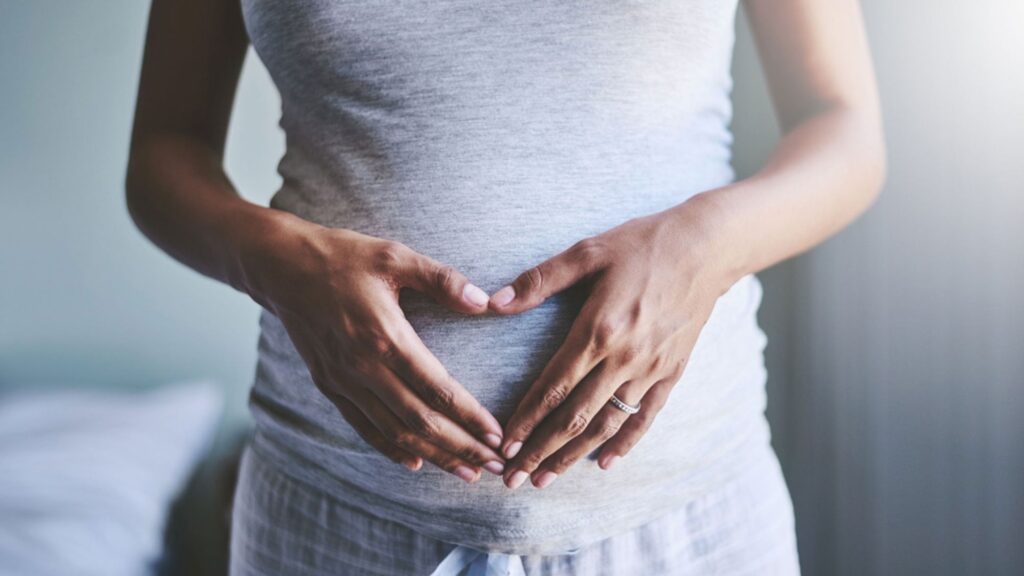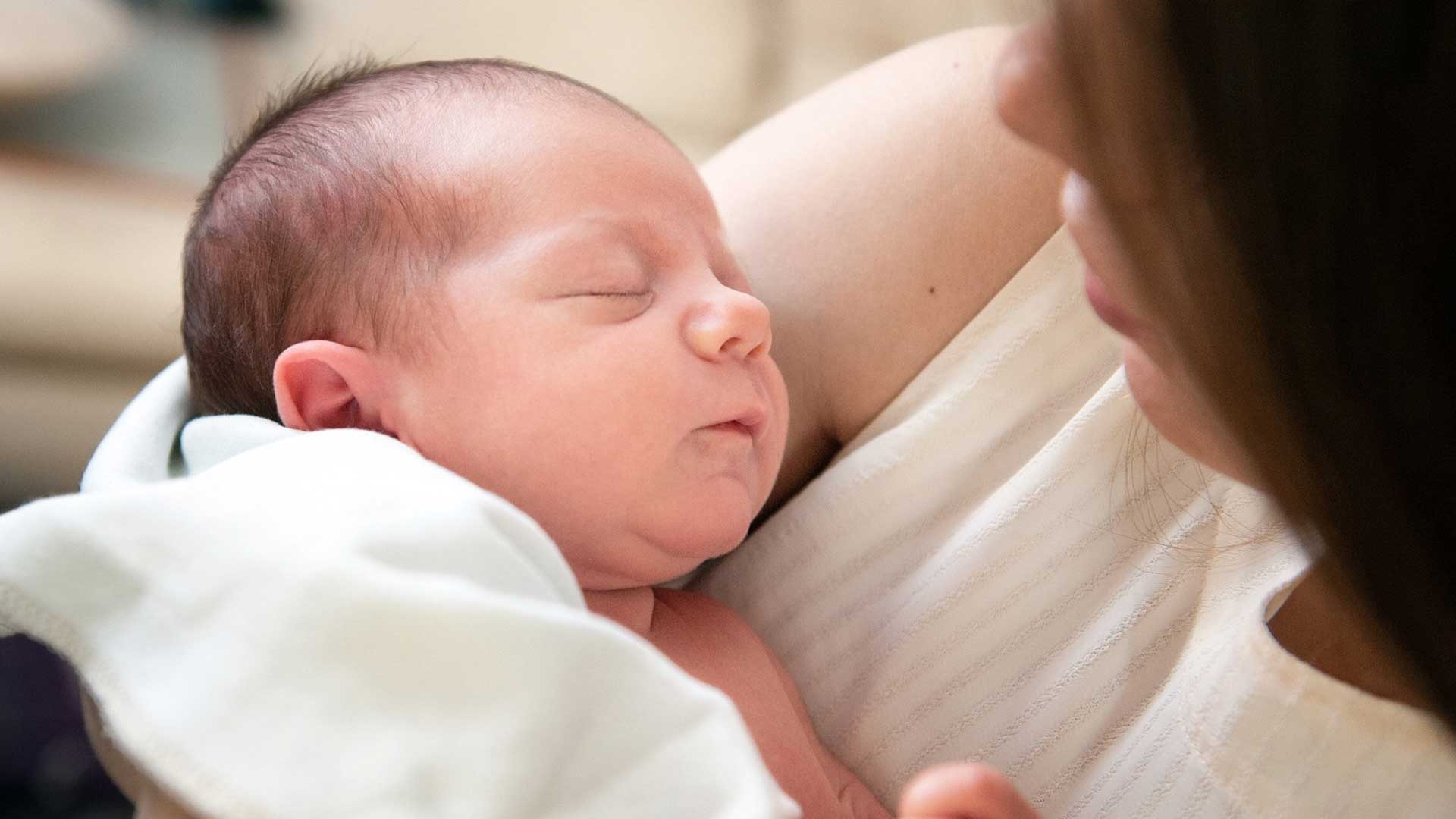
You’re a new mother who’s not sleeping because you feel depressed, or maybe you feel depressed because you can’t sleep? Anxiety consumes you as you worry about your newborn baby, and on nights when you miraculously do fall into a slumber, your little one wakes you for middle-of-the-night feeding. This cycle of challenges can last months and even years, quickly resembling a tangled chicken-or-egg-scenario.
Postpartum depression (PPD), or depression experienced by mothers after childbirth, is often difficult for mothers to recognize and medical providers to diagnose amidst sleepless nights and fluctuating hormones. However, recent research from Lovely Professional School in India points to a new risk assessment tool that can help better diagnose it (1). It also uniquely calls for providers to have better tools to identify PPD beyond the Edinburgh Postnatal Depression Scale, a standard test given once at six weeks postpartum.
The new research proposes that expectant mothers complete a risk assessment, screening, diagnosis, assessment, and therapy of postnatal depression (RASDAT) in the perinatal period, which lasts from roughly halfway through gestation to a week after childbirth. This can help better identify any risk factors for PPD, and would allow for earlier diagnosis and treatment in the postpartum period. Additionally, the research serves to identify the role that insomnia and anxiety play as predictors of PPD in new mothers — something the Edinburgh scale fails to touch on. This focus should give medical providers the ability to treat PPD before it snowballs into severe complications.
Insomnia, or the difficulty of falling or staying asleep, has long been associated with an increased risk of postpartum depression. A 2023 study found that prolonged sleep deprivation and poor sleep quality increased a mother’s probability of postpartum depression and anxiety (2). This issue is anything but uncommon; 1 in 5 women are estimated to develop postpartum anxiety (3) and mothers with pre-existing mental health diagnoses are 1.6-to-3.7 times more likely to experience depression or anxiety (4).
But, as with any new diagnostic tool, the RASDAT isn’t one that will show up tomorrow at your local OBGYN’s office. Researchers point out that further studies are needed to see how feasible and applicable it might be to use this novel method in healthcare facilities, especially with varying attitudes and knowledge of PPD between practices.
Fortunately, there are steps that mothers and their supporters can take in the meantime to keep an eye out for specific signs of PPD in the postpartum period. Additionally, not writing off insomnia symptoms as just “the norm” for postpartum sleepless nights is crucial to increasing awareness of PPD, as well as validating the feelings and symptoms that these new mothers are having.
Here’s what to watch for, according to Mayo Clinic:
- Mood swings, crying, anxiety, or difficulty sleeping that last for more than two weeks, beyond the typical period of “baby blues” many new moms experience
- Severe mood swings or depressed mood
- Crying a lot
- Difficulty bonding with your new baby
- Disconnect or withdrawal from family and friends
- Overwhelming fatigue and energy loss
- Insomnia or sleeping too much
- Irritability and anger
- Fear of being a “bad” mother
- Hopelessness, worthlessness, shame, guilt, or inadequacy
- Inability to think clearly or make decisions
- Restlessness
- Panic attacks or severe anxiety
- Thoughts of harming yourself or your baby
If any of these symptoms become emergent or you have thoughts of suicide, reach out to your healthcare provider immediately and/or contact a suicide hotline. In the U.S., call or text 988 to reach the 988 Suicide & Crisis Lifeline, available 24 hours a day, or reach out to use the Lifeline Chat. Services are free and confidential.

Beating Postpartum Insomnia: Our Expert-Backed Tips

Babies Will Change Your Life, But Did You Know They Can Change Your Sleep Chronotpye, Too?

Guide to Postpartum Depression and Sleep: Tips for New Parents

I Thought I Needed Antidepressants For Postpartum Depression — Turns Out, I Just Needed More Sleep
Sources
1. Sharma P, Khera K. A novel tool for risk assessment, screening, diagnosis, assessment, and therapy in postpartum depression. Int J Gynaecol Obstet. 2024 Feb 11. doi: 10.1002/ijgo.15421. Epub ahead of print. PMID: 38343269.
2. Okun ML, Lac A. Postpartum Insomnia and Poor Sleep Quality Are Longitudinally Predictive of Postpartum Mood Symptoms. Psychosom Med. 2023 Oct 1;85(8):736-743. doi: 10.1097/PSY.0000000000001234. Epub 2023 Jul 13. PMID: 37506301.
3. Liu CH, Erdei C, Mittal L. Risk factors for depression, anxiety, and PTSD symptoms in perinatal women during the COVID-19 Pandemic. Psychiatry Res. 2021 Jan;295:113552. doi: 10.1016/j.psychres.2020.113552. Epub 2020 Nov 4. PMID: 33229122; PMCID: PMC7904099.
4. Liu CH, Erdei C, Mittal L. Risk factors for depression, anxiety, and PTSD symptoms in perinatal women during the COVID-19 Pandemic. Psychiatry Res. 2021 Jan;295:113552. doi: 10.1016/j.psychres.2020.113552. Epub 2020 Nov 4. PMID: 33229122; PMCID: PMC7904099.